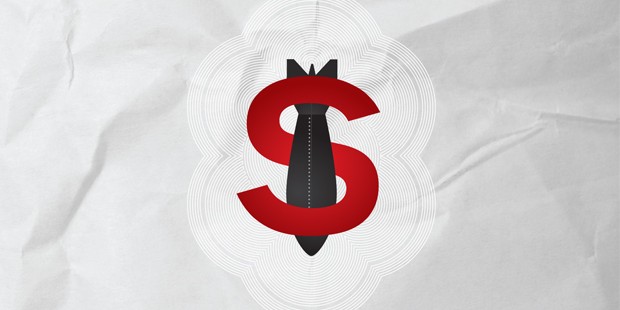Financial institutions from around the world invest almost 314 billion US dollar in nuclear weapons producers, IKV Pax Christi reveals Thursday, October 10 in its worldwide research Don’t Bank on the Bomb.
A total of 298 banks, pension funds and insurance companies invest into 27 companies involved in the production, maintenance and modernization of nuclear weapons.
Depending on their investments and practices, financial institutions are divided into a global “Hall of Shame” or “Hall of Fame”.
Based on this evidence, activists worldwide today call on financial institutions and governments to stop these risky investments into weapons of mass destruction once and for all.
“After all the financial scandals, crises and promises to act in a more responsible and transparent way, here is the evidence that these same financial institutions continue to make unethical investments, into these weapons of mass destruction” said Susi Snyder, co-author of the report for IKV Pax Christi. “As we have seen from the chemical weapons attacks in Syria, there is a real risk that as long as weapons of mass destruction are not comprehensively eliminated, they may be used – these investments in terror must be stopped.” she added.
Many states and financial institutions have spoken out against the risks and effects of these weapons of mass destruction, but as the Don’t Bank on the Bomb worldwide research shows, in the last three years financial institutions:
- provided loans for a total of at least US$ 63 billion;
- provided investment banking services worth at least US$ 43 billion;
- and owned or managed shares and bonds for at least US$ 207 billion.
As well as a “Hall of Shame”, the report also includes examples of good company and national practice. In the “Hall of Fame” and “Runners-up” category, 32 financial institutions are credited for having policies intended to limit or even exclude their investment in nuclear weapon producers.
The full report and the executive summary are available. More information about the research can be found at www.dontbankonthebomb.com.

